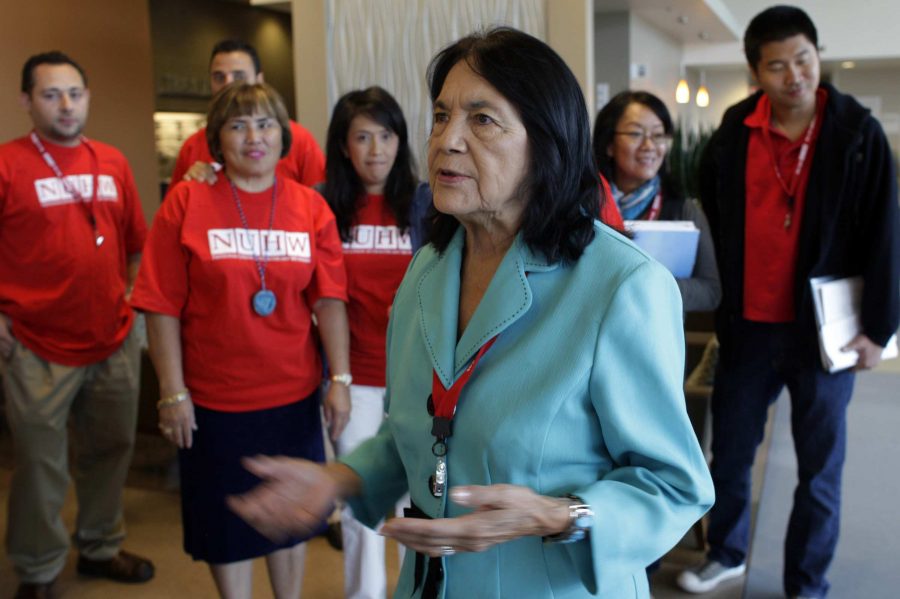In an increasingly global world, immigration and social equality have been hot topics, with many leaders calling for change.
Many people, however, are not sure how they themselves can help lead progress toward equality.
Dolores Huerta, a famous civil rights activist and feminist, gave a lecture to the Wake Forest community on Thursday, Oct. 29 discussing how students can do just that.
Huerta is the president of the Dolores Huerta Foundation, and has received two presidential awards: the Eleanor D. Roosevelt Human Rights Award (1998) and the Medal of Freedom (2012) due to her work with the United Farm Workers movement and her other achievements in grass-roots organizing.
In her lecture, Huerta shared her story organizing the United Farm Workers Movement with Che Guevara. Through this movement, Huerta fought to give immigrant workers basic workers’ rights, such as having access to water and bathrooms when working on farms.
Huerta provided a historical understanding of the shift from acceptance of foreign-born immigrants in the 1920s to xenophobia in the present day to complement her personal experience.
Huerta also explained the perspectives of the immigrants themselves, who often choose to immigrate to the U.S. for economic opportunity and political stability.
By explaining both perspectives on the topic of immigration, Huerta left students with a lot to consider.
Tierney Cross, a first-year at Wake Forest, called the lecture inspiring. She was funny and kept the crowd very engaged,” Cross said. “It’s incredible that [Huerta] is working so tirelessly at the age of 85.”
They moved on to discuss the situation of workers’ rights locally. North Carolina is a “fight to work” state, which significantly reduces the power of unions.
Huerta urged the Wake Forest community to consider what can be done to improve our region in regards to workers’ rights, gender equality, and racism.
The lecture was well-received by Wake Forest students.
“Her ideas and understanding of the issues in America were impeccable. She articulated them well and left many of us inspired to make a difference,” said Tatenda Mashanda, a junior at Wake Forest. “Dolores’ commitment to the betterment of the society is par excellence.”
“I thought that she was really spirited and was able to cover a lot of issues really effectively,” said freshman Nadia Klammer. “I also thought that her emphasis on the importance of voting very interesting.”
With over 50 years of experience as a community organizer and social justice advocate, Huerta had significant expertise to share with the students who attended the lecture.
Cassiel Smith, the program sssistant for the Office of Multicultural Affairs, noted that Huerta “embodies the motto here at Wake Forest of Pro Humanitate through the many efforts and sacrifices that she has made and continues to make for all of humanity.”
Through a variety of anecdotes, Huerta reflected upon the hard work and determination necessary for grassroots movements.
Huerta emphasized, however, that the reason these movements were successful was because those involved spoke up and fought for themselves.
The lecture ended with Huerta leading encouraging chants, including “si se puede,” or “yes you can.”
The 85 year-old civil rights activist left the Wake Forest community with a challenge to do what it can for the rights of humanity.










